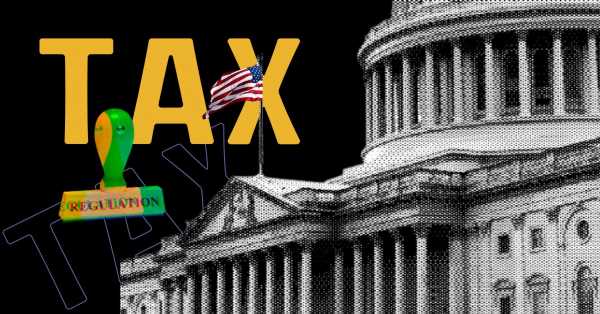US Congress Bipartisan Effort to Revise Digital Asset Tax Reporting
In a landmark move, critical figures in the United States Congress, led by House Financial Services Committee Chairman Patrick McHenry and Congressman Ritchie Torres, have written a letter to revise proposed digital asset tax reporting regulations. This bold stance comes as a response to the Treasury’s current approach, which lawmakers argue could stifle innovation and hinder the flourishing digital asset market in the U.S.
Unworkable Tax Reporting Requirements: A Call for Change
The bipartisan group, including notable figures like Congressmen Warren Davidson, Eric Swalwell, and Majority Whip Tom Emmer, voices strong concerns over the existing proposed regulations stemming from the Infrastructure Investment and Jobs Act (IIJA). They argue that the broad definition of a “digital asset Broker,” the lack of clarity in defining a “Digital Asset,” and a notably short comment period pose significant threats to the digital asset ecosystem’s survival in the U.S.
The Letter’s Key Highlights
- Overly Broad Definition of ‘Broker’: The current proposal extends the definition of ‘broker’ to include entities engaged in facilitative services, encompassing a significant portion of digital asset entities, such as DeFi exchanges. This broad categorization could impose undue regulatory burdens on entities not traditionally considered brokers.
- Ambiguity in ‘Digital Asset’ Definition: The proposed regulations’ definition of ‘digital asset’ is seen as insufficiently nuanced, failing to differentiate between various types and uses of digital assets, including stablecoins and NFTs. This lack of distinction could have far-reaching implications on the usability and development of different digital assets.
- Short Comment Period and Implementation Timeframe: The letter also raises concerns about the rushed timeline for comments and implementation, arguing that it restricts meaningful feedback and strains market participants who require more time for compliance.
The Potential Impact on the U.S. Digital Asset Ecosystem
This move by the bipartisan group highlights a critical juncture in the U.S. digital asset space. If implemented without changes, the current proposal could potentially drive a significant portion of the digital asset ecosystem away from the U.S., impacting innovation and market growth. The lawmakers urge the Treasury to reconsider and adjust the proposed regulations, advocating for a more balanced and workable tax reporting framework supporting growth and innovation within the digital asset sector.
Source: Read Full Article

